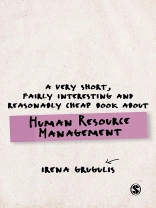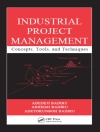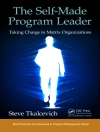Engaging and entertaining in equal measure, Human Resource Management is a book about work, the people who do it and the way they are managed (and mismanaged). Raising issues that are often neglected in typical HRM texts, such as work intensification and unemployment; it explores the realities of work, workers, and the communities that are affected by HRM policy and practice. Grugulis draws on current research to provide a critical and reflective overview of the key debates in HRM today.
Conceived by Chris Grey as an antidote to conventional textbooks, each book in the ‘Very Short, Fairly Interesting and Reasonably Cheap’ series takes a core area of the curriculum and turns it on its head by providing a critical and sophisticated overview of the key issues and debates in an informal, conversational and often humorous way.
Suitable for students of HRM, professionals working in organizations and anyone with an interest in the nature of human resources.
Table des matières
Introduction
Chapter 1: Human Resource Management
Chapter 2: Is HRM strategic?
Chapter 3: Skills and Training
Chapter 4: Pay and Reward
Chapter 5: Flexible Work and Flexible Workers
Chapter 6: Employee Voice
Chapter 7: Service Work
Chapter 8: HRM and the Future of Work
Conclusion
A propos de l’auteur
Irena Grugulis is Professor of Work and Skills and Head of the Work and Employment Relations Division at Leeds University Business School and an Associate Fellow and member of the Steering Group at the ESRC Centre for Skills, Knowledge and Organisational Performance at Oxford University. She held an ESRC/AIM Services Fellowship and served as Editor and Joint Editor-in-Chief of the journal Work, Employment and Society for seven years. Her principal research interests lie in the (broadly constituted) area of skills, particularly the way that organisations attempt to shape their employees and the impact and implications of this for the employees themselves. She has published extensively including articles in Organization Studies, Journal of Management Studies, British Journal of Industrial Relations and Work, Employment and Society.












